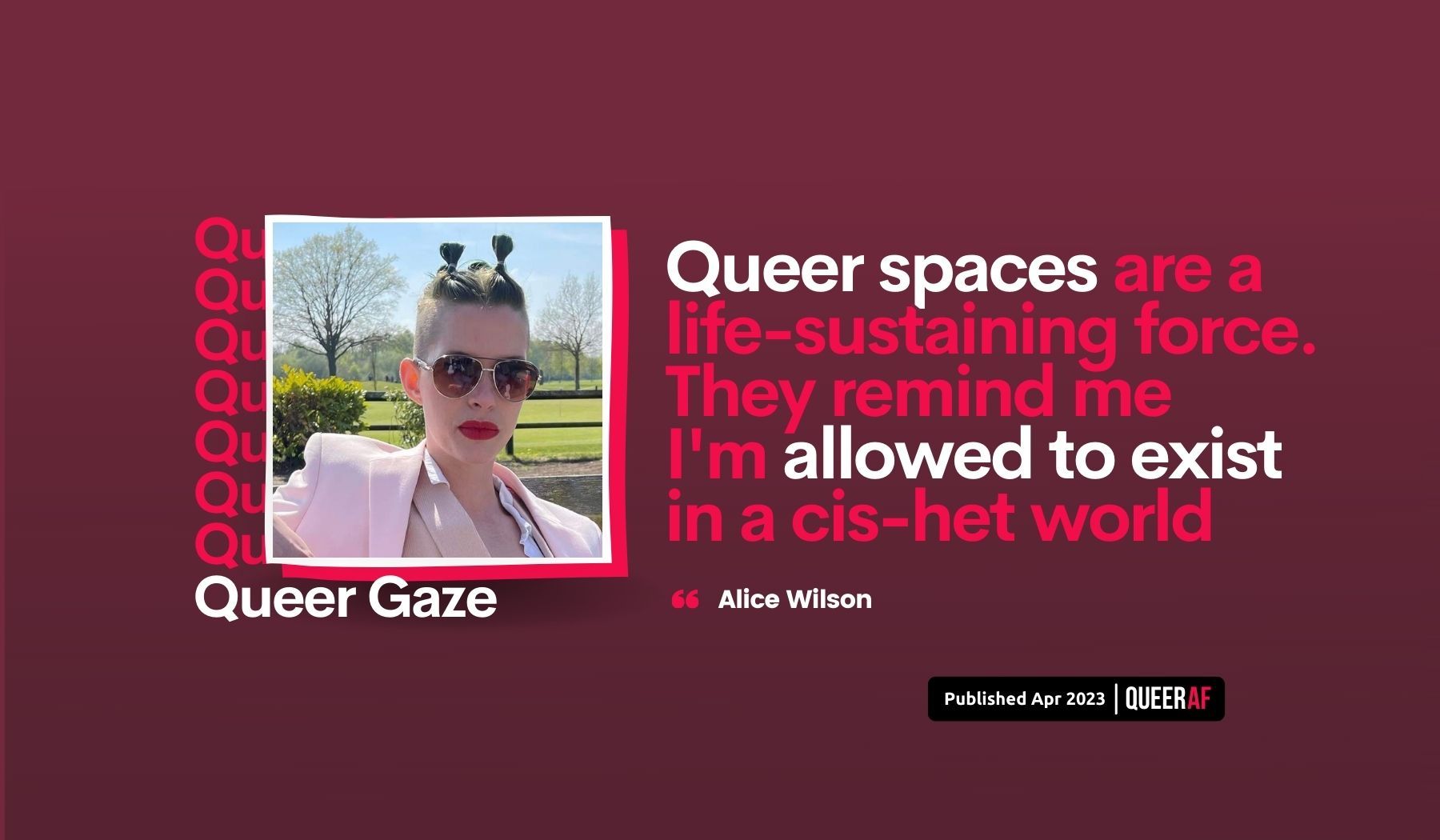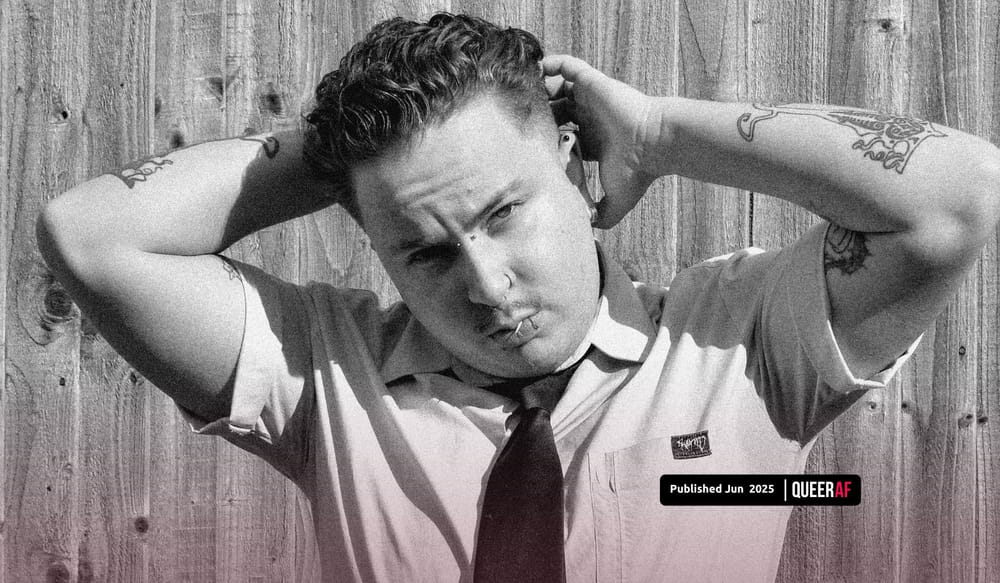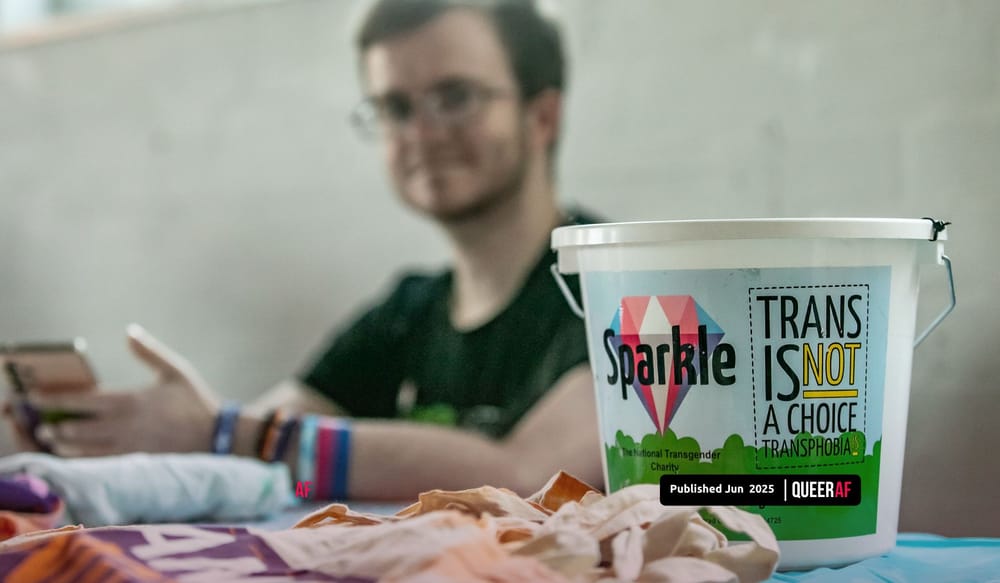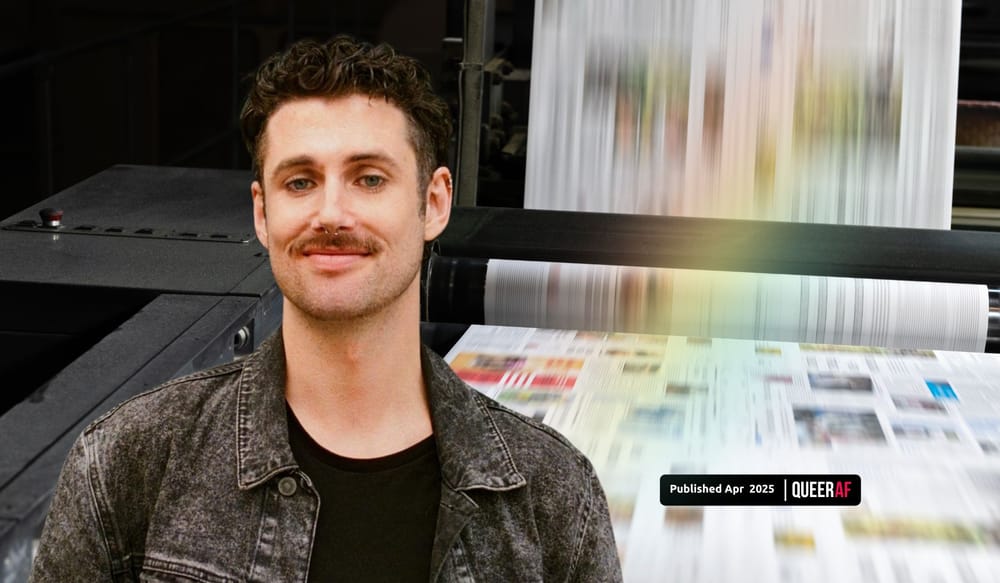
As a queer, soft-masc woman, I am often looked at with suspicion.
Anti-trans attitudes position non-archetypically gendered bodies as suspect and dangerous.
Whether you are queer, cisgender, trans or beyond the binary - society punishes people who are not ‘socially legible’ or pass as either trans or cis.
But queer spaces provide a life-sustaining antidote to the dreaded side-eye.
We all get it. For me it’s the occasional stare from children in gym changing rooms who ask their mums loudly, "What is that boy doing in here?". Or the looks of confusion or alarm in women's bathrooms, where some women are upset by what they see as a male being in their space.
Equally, I tend to avert my gaze from other women in these public, gendered, single-sex places. I don’t want the women around me to feel any hint of the kind of predatory looking that so many are subjected to by some men, so I look at the ground.
This combination of being looked at with wariness by others and of not daring to look at others myself can lead to loneliness and isolation. But these discomforts evaporate in queer spaces.
In the sacrosanct mania of the drag night, the hallowed isles of the queer bookshop, and the gathering of souls at a queer poetry night. Here I feel the life-affirming power of recognition and celebration.
Indeed, the tremendous political power of queer spaces lies in being seen: in refusing to blend in and erase ourselves.
Queer visibility is a form of rebellion all of its own.
In Over The Rainbow cafe and in Portal bookshop in York where I live, I look and am looked at with celebration and welcome.
This shared looking is a powerful experience of togetherness, of seeing each other and ourselves with no hint of shame or admonishment. It’s why queer events pop up all over the country, even in the most remote isles.
Last year, I met queer punk-rock poetry legend Rosie Garland at a queer poetry night hosted by the University of York. I was reminded of the endurance and unsquashable will to live, create and celebrate that queer people have always had.
The energy and delight of looking around the room and seeing so many members of The Family™ was a tonic. Being in queer spaces not only gives me hope but gives me power.
We do something extraordinary when we all exist together, witnessing each other.
Rosie complimented my nails (always black, always glitter) and I died a little gay death of happiness. I, in turn, asked a glorious person how they got their eyeliner so perfect and we swapped stories about the best hair dyes for glow-in-the-dark shades.
This is the lifeblood of queer joy; we recharge each other.
Just hanging out, listening to poetry, looking at books we can’t afford to buy, celebrating the appetite for life that drag performers release into the crowd like so many doves at a wedding.
All of us vowing together, in sickness and in health, to look out for each other, to look after each other, to not look away from each other.
This is the life-sustaining power force that reminds me that I am allowed to go to the gym, to use the changing rooms, to use the bathroom, to exist without cis-het editing or caveats.
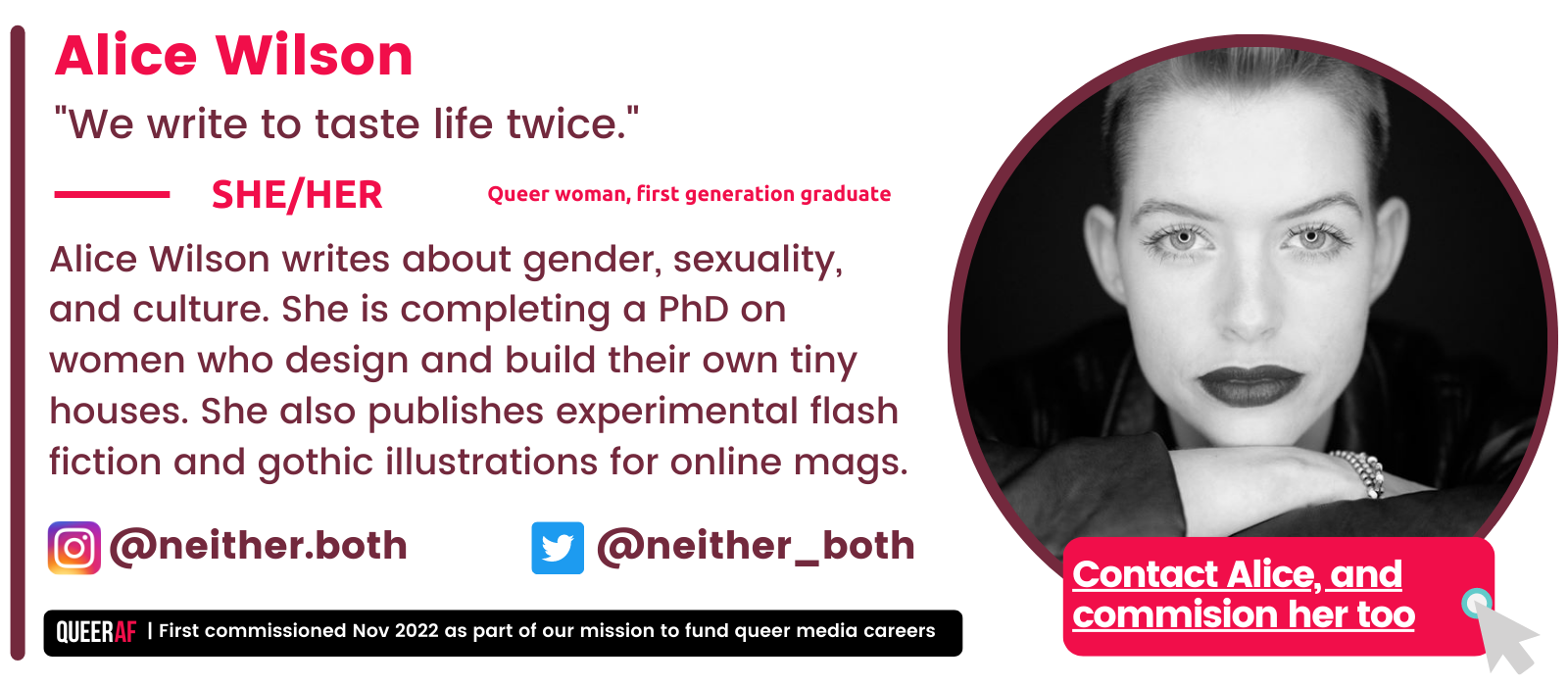
It's different, we know.
The way QueerAF works with contributors is different from most outlets.
When we work with emerging and marginalised writers who want to build their craft we offer them a skills session with every commission.
The session is designed to put them in control of their edit and to help them understand the reasons behind any changes we suggest. Understanding why, not just what, helps them grow their journalistic flair - and get more commissions.
It's been described as "like therapy, but for writing" - and it's helping.
We ask every creative to rate our process. 90% gave us a perfect score on our communication and approach. The retro, our unique way of editing their work, has an average rating of 9.8/10.
But this approach, which means you get free award-winning content from fresh new voices without outside pressures, is only possible with your support.
So why not take a look at what our creatives say about our work, and find out how to become 100% QueerAF?


